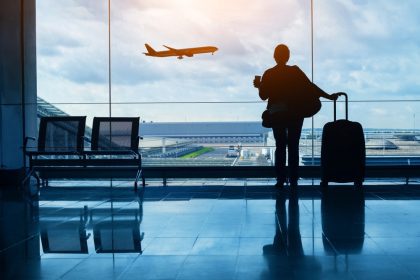New research links exploration with longevity benefits
Scientists are discovering that wanderlust may be more than just a desire for adventure—it could be a prescription for staying young. Emerging research suggests that travel experiences may actively combat the aging process, offering a compelling reason to pack your bags beyond simple leisure.
The connection between travel and healthy aging represents a fascinating intersection of lifestyle medicine and gerontology. As researchers delve deeper into this relationship, they’re uncovering mechanisms that suggest our passport stamps might correlate with cellular health and cognitive vitality.
This scientific exploration comes at a crucial time when the global population is aging rapidly, and healthcare systems worldwide are seeking innovative approaches to promote healthy longevity. Travel, once viewed primarily as entertainment or cultural enrichment, is now being examined as a potential therapeutic intervention.
The biological foundation of travel’s anti-aging effects
The human body responds to novel environments in measurable ways that appear to slow aging processes. When travelers encounter unfamiliar surroundings, their stress response systems activate in beneficial patterns that differ markedly from chronic stress reactions.
Research indicates that the temporary stress of navigating new environments triggers adaptive responses that strengthen immune function. Unlike the harmful effects of prolonged workplace stress or financial worry, travel-related stress appears to enhance cellular repair mechanisms and promote neuroplasticity.
The immune system, in particular, shows remarkable improvements during and after travel experiences. White blood cell activity increases, inflammatory markers decrease, and the body’s natural defense mechanisms appear to reset in ways that promote longevity.
Additionally, exposure to different climates, altitudes, and environmental conditions forces the body to adapt, potentially strengthening cardiovascular function and metabolic flexibility. These adaptations mirror the beneficial effects of controlled physical stress, such as exercise, but occur naturally through the travel experience.
Cognitive benefits that extend beyond vacation
Travel‘s impact on brain health represents one of the most promising areas of anti-aging research. The constant navigation of new environments, languages, and social situations creates what researchers term “cognitive load”—a beneficial form of mental exercise that appears to protect against age-related cognitive decline.
Learning and memory enhancement
When travelers encounter unfamiliar languages, currencies, and customs, their brains form new neural pathways at accelerated rates. This neuroplasticity, the brain’s ability to reorganize and adapt, typically declines with age. However, regular travel experiences appear to maintain and even enhance this crucial cognitive flexibility.
The memory consolidation that occurs during travel also differs from routine experiences. The brain prioritizes novel information, leading to stronger, more durable memories. This enhanced memory formation may contribute to overall cognitive resilience as people age.
Problem-solving and adaptability
Engaging in a journey inherently involves problem-solving, from navigating transportation systems to communicating across language barriers. These challenges stimulate executive function—the cognitive skills responsible for planning, decision-making, and adaptive thinking. Regularly activating these abilities through travel may contribute to preserving cognitive health in later years.
Social connections and emotional well-being
The social aspects of travel provide another mechanism through which exploration may slow aging. Loneliness and social isolation are recognized risk factors for accelerated aging, while strong social connections are associated with increased longevity.
Exploration naturally fosters social interaction, whether through chance encounters with fellow travelers or meaningful cultural exchanges with local communities. These experiences often unfold beyond the constraints of established social hierarchies, enabling more authentic connections.
The emotional benefits of travel go beyond fleeting enjoyment. Research suggests that simply anticipating a meaningful journey can activate reward centers in the brain, while the memories formed during those experiences continue to offer psychological value long after returning home. This sustained pattern of positive emotions may support improved mental health and contribute to slower aging.
Physical activity integration
Unlike structured exercise programs, travel incorporates physical activity organically into daily experiences. Walking through historical districts, hiking to scenic viewpoints, or swimming in natural bodies of water provides cardiovascular benefits without the psychological barriers often associated with gym-based fitness routines.
The varied nature of travel-related physical activity also engages different muscle groups and movement patterns than routine exercise. This diversity may contribute to better overall physical function and mobility—key factors in healthy aging.
Journeys often involve carrying luggage, navigating stairs, and adapting to unfamiliar sleeping arrangements—activities that challenge the body’s stability and strength. These functional fitness demands may help preserve the physical capabilities needed for independent living as people age.
Stress reduction and hormonal balance
Chronic stress accelerates aging through multiple pathways, including increased cortisol production, inflammation, and cellular damage. Travel’s ability to disrupt stress patterns represents a significant anti-aging benefit.
The temporary removal from daily stressors allows the body’s stress response systems to reset. Cortisol levels, which remain elevated during chronic stress, tend to normalize during relaxing travel experiences. This hormonal rebalancing may slow the cellular aging processes associated with prolonged stress exposure.
The anticipation of a trip also appears to offer stress-reducing benefits, with studies showing decreased cortisol levels in the weeks leading up to planned journeys. This suggests that travel’s anti-aging effects may begin even before departure and continue long after returning home.
Future implications for healthy aging
As research into its anti-aging effects progresses, healthcare providers may begin incorporating recommendations for meaningful journeys into preventive care strategies. The concept of “prescriptive travel” could emerge, with certain types of experiences tailored to support specific health goals.
The accessibility of travel-related benefits makes it an appealing option for promoting healthy aging. Unlike costly medical treatments or complex lifestyle changes, journeys can often be tailored to suit a range of physical abilities and financial situations.
Recognizing the role of exploration in well-being may also inspire changes in urban planning and community design, aiming to bring some of the enriching elements typically associated with travel closer to everyday life.
The emerging science connecting mobility and aging suggests that venturing beyond the familiar may be one of humanity’s most natural and enjoyable ways to stay young. As research continues to uncover the mechanisms behind this relationship, the age-old saying that travel broadens the mind may carry more biological truth than once believed.

















